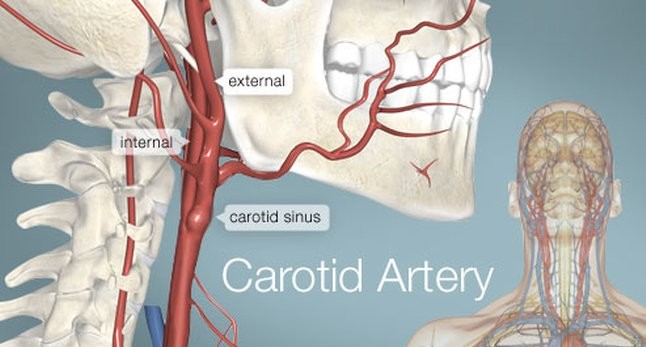
Symptoms and Causes of Carotid Artery Disease - Cardiology Doctor in Houston
Advanced Cardiovascular Care Center gives extraordinary, family-focused consideration to kids and youthful grown-ups with suspected or diagnosed cardiovascular disease of all types. The establishment of our consideration concentrates on heart disease. Whether the patient needs an outpatient visit or requires hospitalization we have the offices and the specialists to give the most abnormal amount of tend to all patients in all circumstances. Our Heart Clinic in Houston is a pioneer in giving a steady group and family-focused way to deal with heart care with cardiovascular disease in any situation.
The carotid arteries are the blood vessels that carry oxygen-rich blood to the head, brain and face. They are located on each side of the neck. You can easily feel them by placing your fingers gently either side of your windpipe.
The carotid arteries supply essential oxygenated blood to the large front part of the brain. This part of the brain controls thought, speech, personality as well as our sensory (our ability to feel) and motor (our ability to move) functions.
The brain survives on a continuous supply of oxygen and glucose carried to it by blood. Carotid Artery Disease is the narrowing or blockage of these arteries (stenosis) due to plaque build-up (atherosclerosis). The plaque can then cracks, and develop an irregular surface, which is when it begins to cause problems.
If a piece of plaque or a blood clot breaks off from the wall of the carotid artery it can block the smaller arteries of the brain. When blood flow to the brain is blocked, the result can be a transient ischemic attack (TIA), which temporarily affects brain function, or a stroke, which is permanent loss of brain function. Common symptoms of TIA include brief attacks of weakness, clumsiness, numbness or pins and needles of the face, arm or leg on one side of the body.
Carotid artery disease is one of the most common causes of stroke. More than half of the strokes occur because of carotid artery disease. Carotid Artery Disease influences the vessels prompting the head and brain. Acquiring this disease is a risk factor for having a stroke.
Carotid disease for the most part doesn't brag any side effects. However, when blood flow to a portion of the brain is limited, side effects by and large happen. If an individual is encountering cautioning indications of a stroke, there is likely a blockage in the carotid arteries.
Transient Ischemic Attacks (TIAs) are brief scenes of cerebral pains, discombobulating, shivering, deadness, obscured vision, perplexity, or loss of motion that can last anyplace from a couple of minutes to two or three hours. It's basic that an individual see a specialist quickly if there are any indications of a TIA.
There are a few danger risks for carotid supply route disease, these include:
- Diabetes
- Smoking
- Obesity
- Lack of activity
- High blood pressure
- Family history of coronary vein disease or stroke
- High levels of "awful" cholesterol and triglycerides in the blood
Treatment choices for Carotid Artery Disease are subject to the reason and seriousness of the disease. For atherosclerotic plaque, the most well-known medications are:
- Way of life changes: The best changes are to stop smoking, control hypertension, confine the measure of liquor you drink, and work out.
- Pharmaceuticals: Certain drugs that keep the blood from thickening, for example, headache medicine or anticoagulants may be endorsed to keep a stroke.
- Surgery: Having a carotid endarterectomy expels greasy plaque from arteries.
Seek counsel from our Top Cardiologists in Houston if you suspect you are suffering from Carotid Artery Disease for the best treatment options for you.